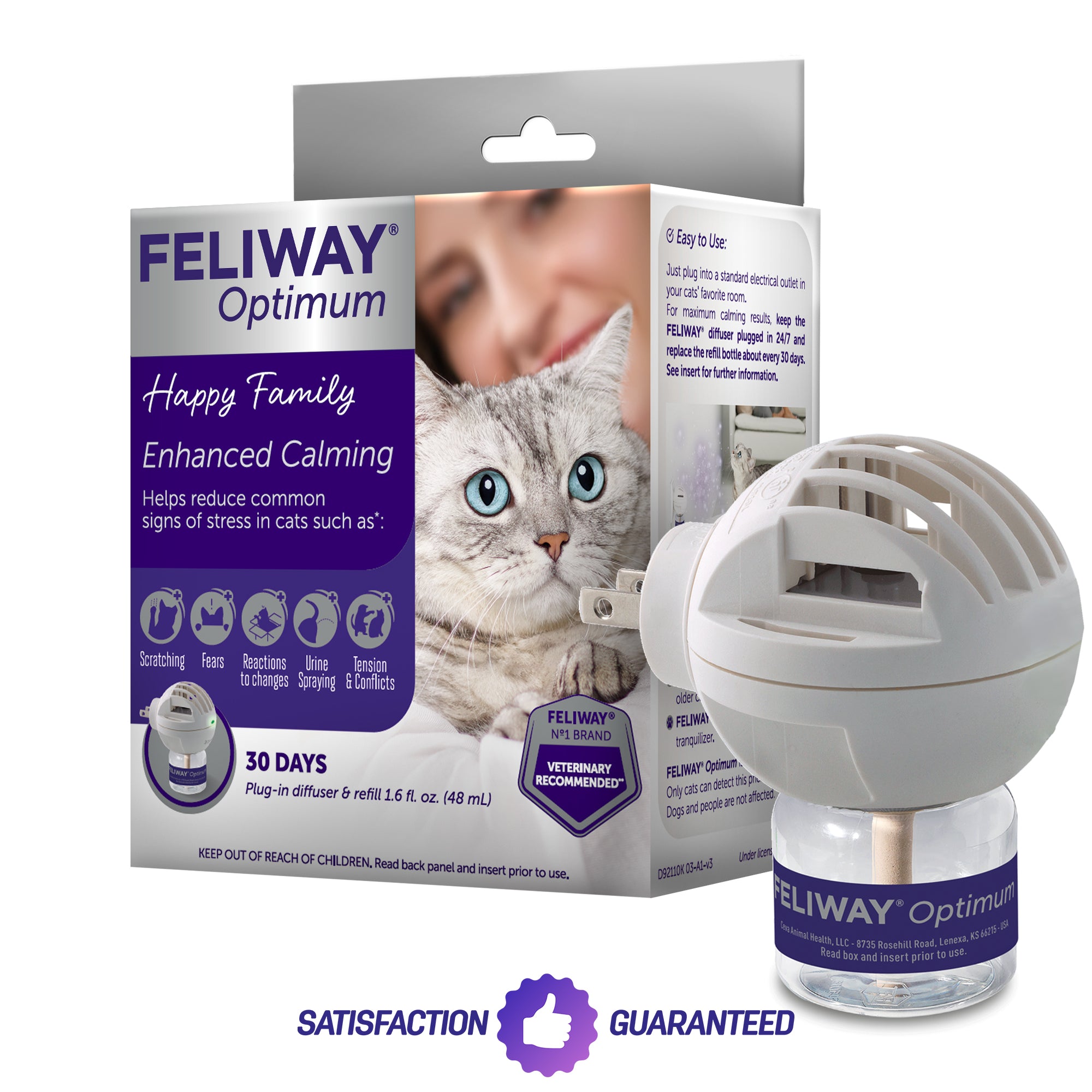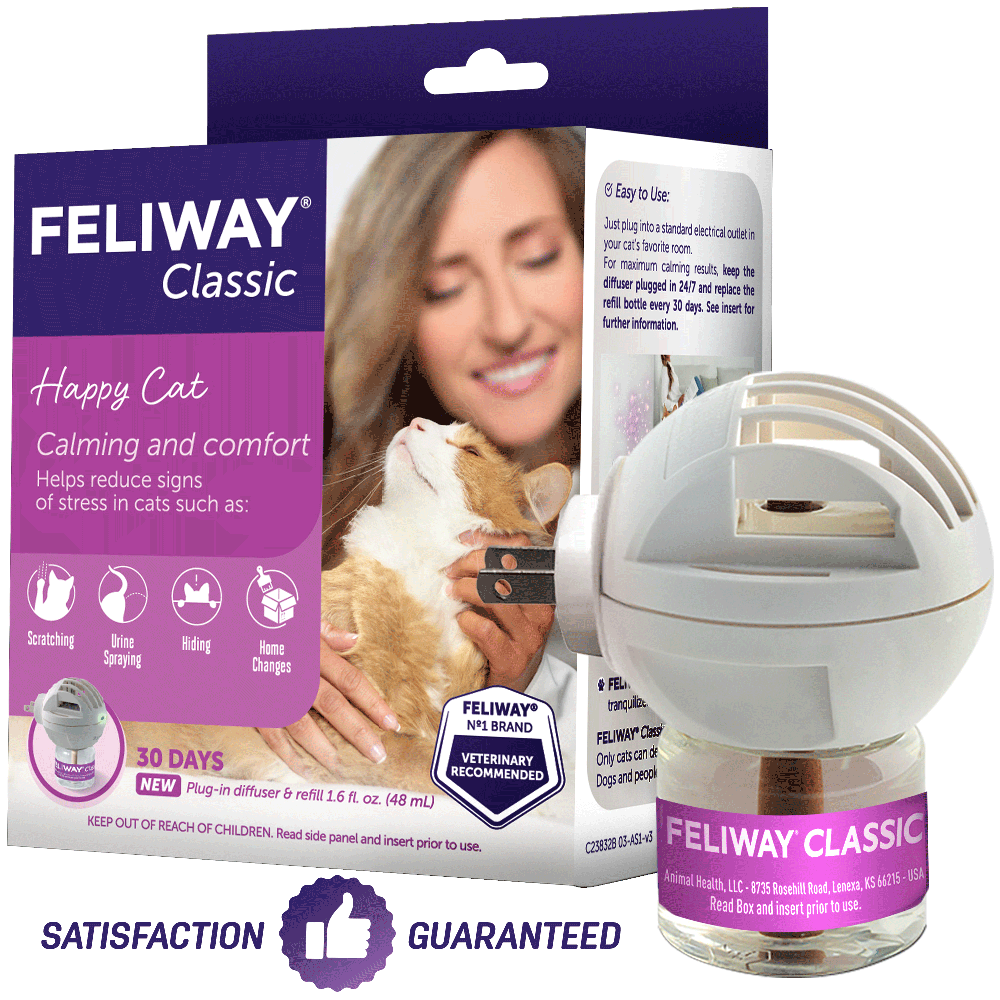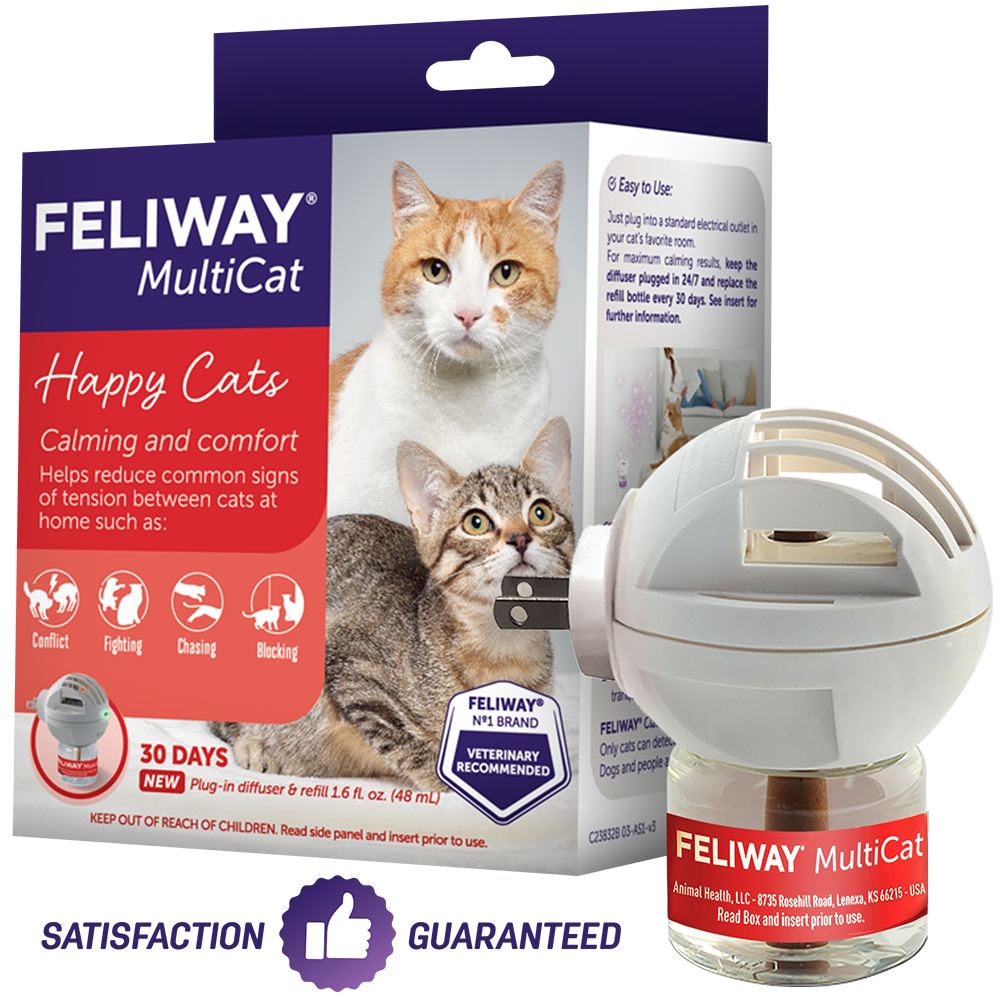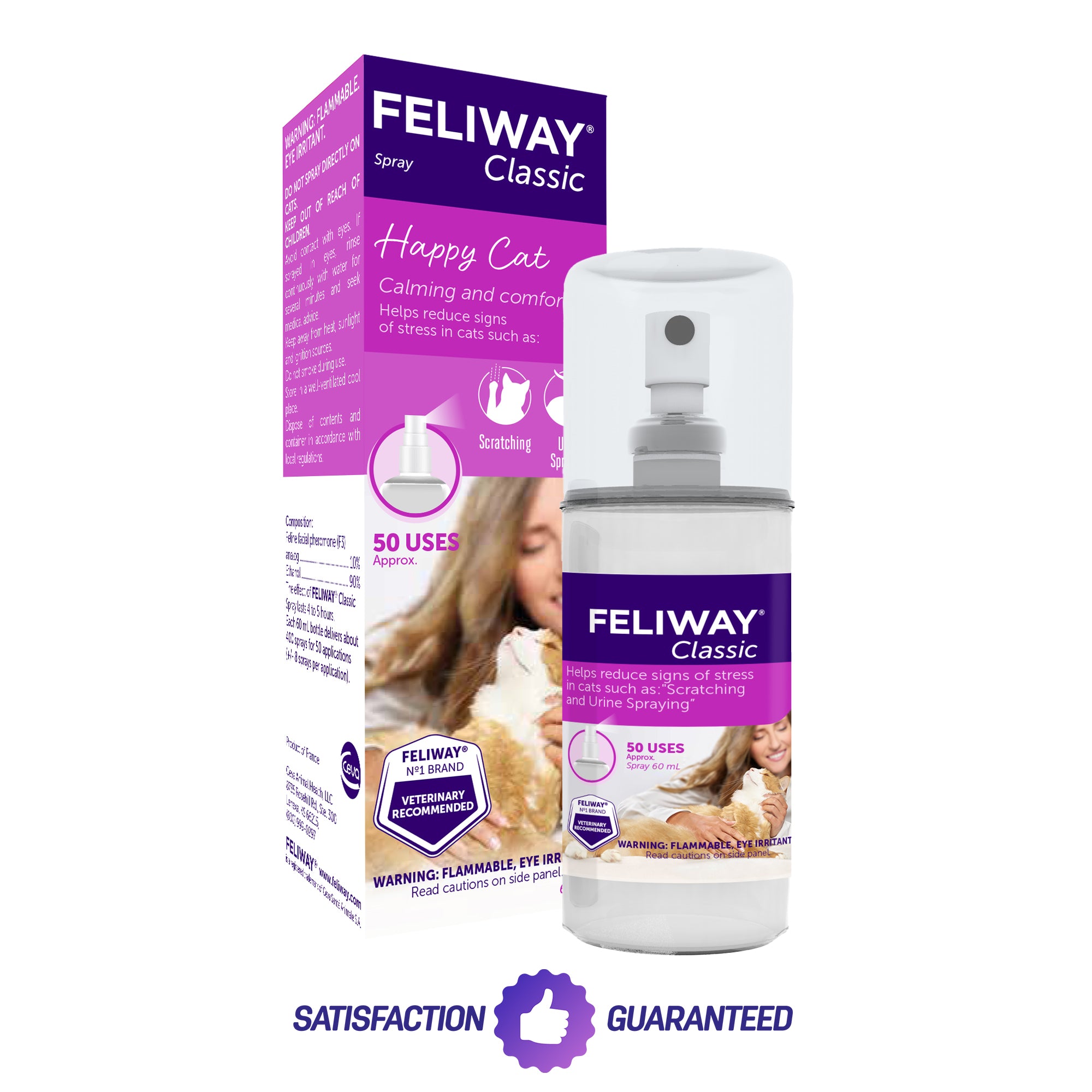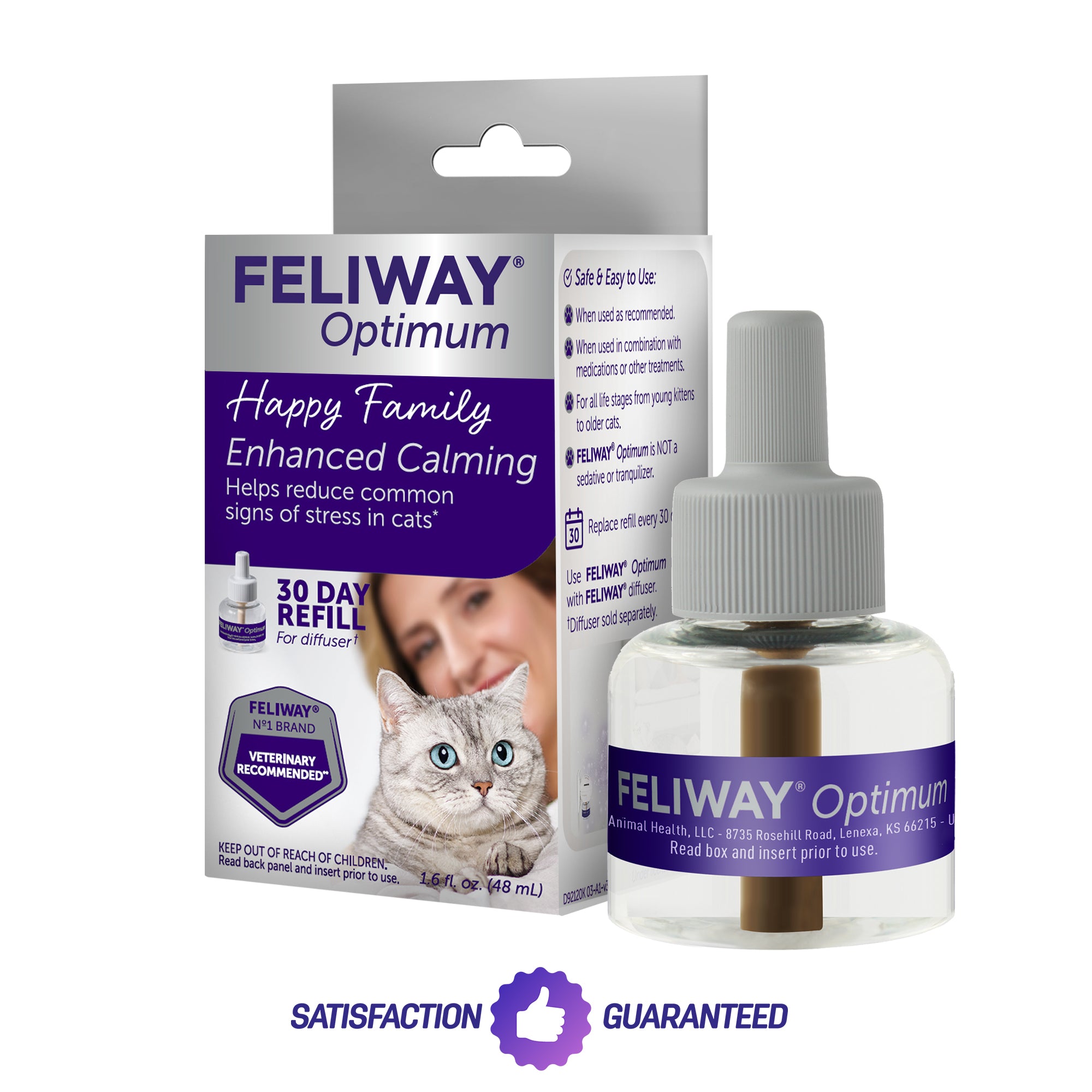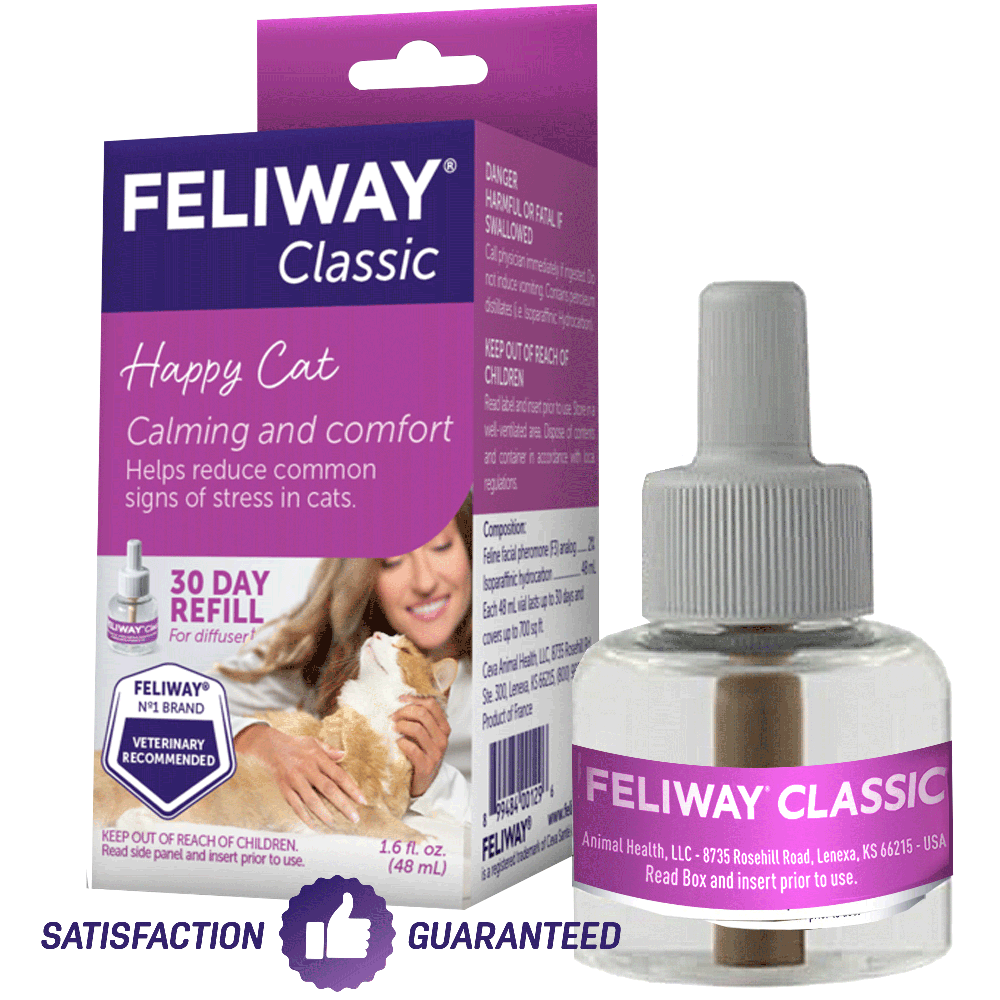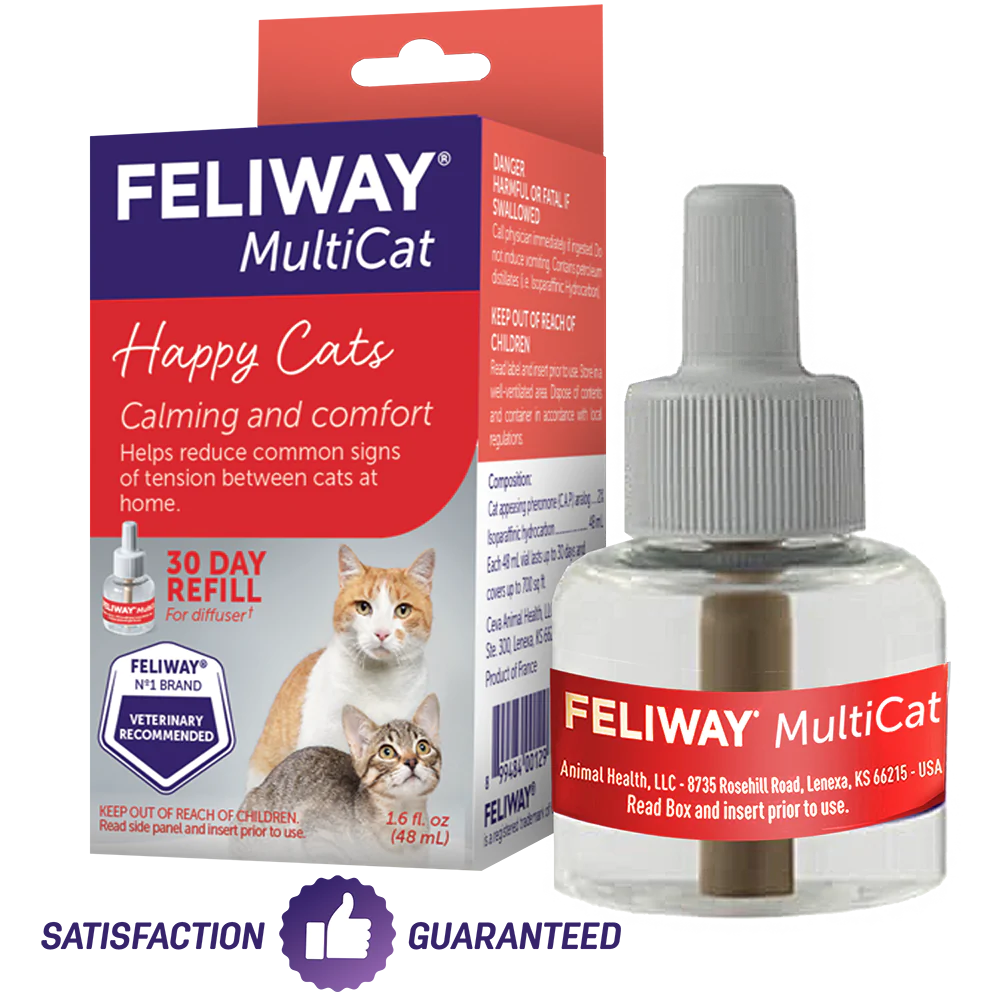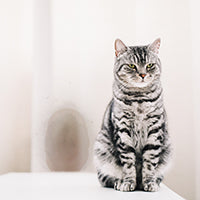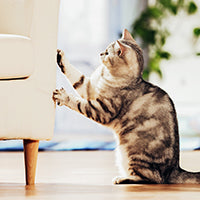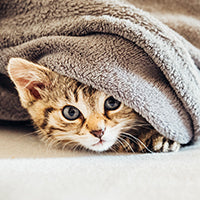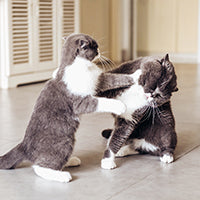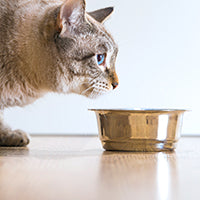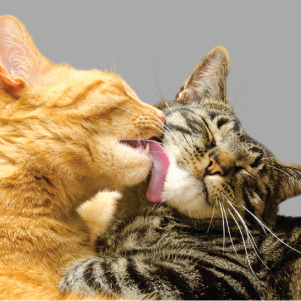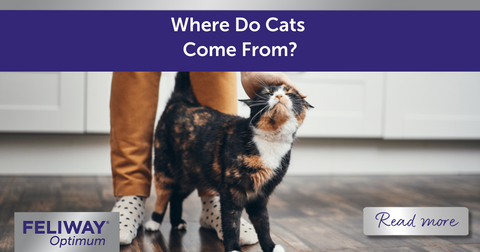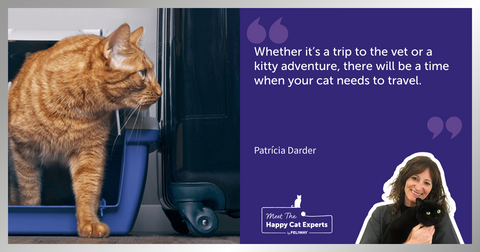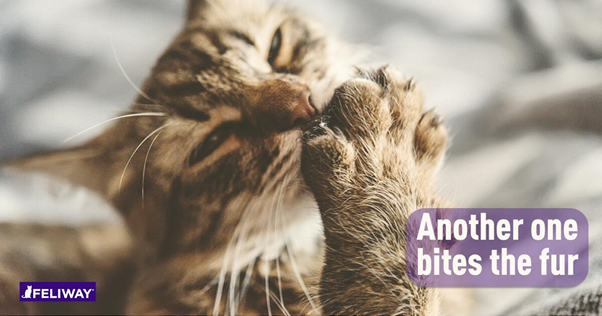
Why Do Cats Bite Their Fur? Is your pet overgrooming?
Is your cat grooming their fur a little too much?
While grooming, licking and nibbling their fur is a perfectly natural and normal cat behavior (and most kitties will spend around 30-50% of their day perfecting their coat!), sometimes our furry friends may start overgrooming.
Why is My Cat Biting Their Fur?
If you notice your purr-fect pal constantly biting or grooming their fur, pulling at their hair or pulling it out - or if they lick repeatedly at a certain spot, they may be overgrooming.
There are lots of reasons for this behavior. Allergies and stress can be the main causes, so it’s important to notice if your cat is overgrooming, and work to identify the issue.
If you’ve noticed your cat biting their fur too much, consider:
● Do they have a skin irritation? Fleas, allergies and other skin problems can often cause irritations, making your pet bite their fur to scratch the itch! It’s always important to speak to a vet to identify and treat the cause - your pet may need flea treatment, or may be experiencing an allergy to something in their food or around the house. Poor diet and nutritional deficiencies can be another cause of skin irritation, so always check with a professional!
● Are they in pain? If your pet is in pain, they may start overgrooming as a way to soothe themselves. For example, a cat with painful joints or an injury may lick all of the hair off in that area. Your veterinarian can check for allergies and pain, as causes, when you take them for a check-up.
● Is your pet stressed or bored? Licking and grooming is a soothing behavior for your cat, so overgrooming is often an instinctive response to stress, anxiety or boredom.
Overgrooming behaviors are never healthy for your pet, so it’s important to try and identify the cause, so that you can help your kitty!
Signs Of Cat Overgrooming
If you’re not sure if your pet is overgrooming - or just keeping themselves clean - there are a few signs to watch out for. A cat who is overgrooming might:
● Repeatedly lick, pluck, chew or bite on an area of skin
● Pull out tufts of fur
● Have patches of thin fur or bald areas
● Have areas of red or broken skin caused by biting - often on their belly or sides
Common areas to look for excessive grooming are in places that your cats can reach easily with their tongue. Their stomach, sides, inner hind legs, as well as their legs, paws and tail may be affected - and often your pet will overgroom symmetrically on both sides of the body.
How to Help an Overgrooming Kitty
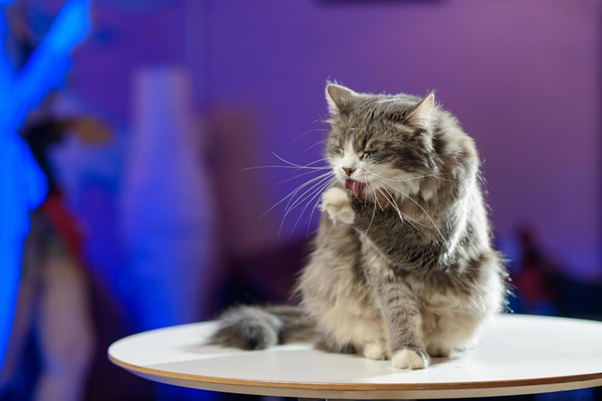
If you think your pet is overgrooming, try to address the cause immediately. It may help to monitor your cat’s grooming frequency so you can notice excessive behaviors. If you think there may be a problem, you should:
Check with the vet
Always check with the vet if you notice any overgrooming behavior. Skin conditions, allergies, parasites, and pain can all cause your pet to overgroom or constantly lick or bite their fur. Left untreated, your pet can cause additional damage to themselves through biting - so always seek professional help.
Minimize any stressors
If you’ve determined that there are no health issues affecting your kitty, consider if they are overgrooming as a stress management tactic. Boredom, a new person or animal in the house, new sounds such as roadworks or a new appliance, conflicts with another cat, or changes around the home such as decorating can all trigger anxiety for your pet.
Try to assess if your cat is stressed or anxious and remove or amend any causes for concern. Maintaining a calm, relaxed environment is a good way to start - never shout at or punish your cat for any reason as this will only confuse them and add to their stress!
Entertain your pet!
Is your cat overgrooming because they are bored? Make sure your pet has a good range of toys to play with, a scratching post and lots of kitty entertainment! It’s important to spend time playing with your pets everyday - set a routine and be sure to play, pet and fuss your cat to grow your bond and ensure they are happy!
Keep to a routine
Our cats are very purr-ticular about their routines! They like to know what’s happening, and when to expect things like food and playtime. Without that routine, your cat may become stressed and overgroom themselves - so try to stick to your kitty routine.
Create a Calming Home with FELIWAY
To help your kitty feel calm, settled and minimize stress-related behaviors, FELIWAY Optimum Diffuser can support a positive, comforting environment.
Recommended to comfort cats at home and help to nurture your relationship with your cat, FELIWAY can reduce kitty stress and help to prevent stress-related overgrooming.
